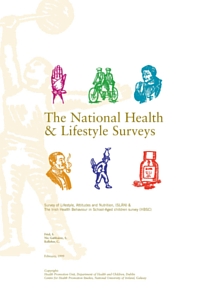-
Courses

Courses
Choosing a course is one of the most important decisions you'll ever make! View our courses and see what our students and lecturers have to say about the courses you are interested in at the links below.
-
University Life

University Life
Each year more than 4,000 choose University of Galway as their University of choice. Find out what life at University of Galway is all about here.
-
About University of Galway

About University of Galway
Since 1845, University of Galway has been sharing the highest quality teaching and research with Ireland and the world. Find out what makes our University so special – from our distinguished history to the latest news and campus developments.
-
Colleges & Schools

Colleges & Schools
University of Galway has earned international recognition as a research-led university with a commitment to top quality teaching across a range of key areas of expertise.
-
Research & Innovation

Research & Innovation
University of Galway’s vibrant research community take on some of the most pressing challenges of our times.
-
Business & Industry

Guiding Breakthrough Research at University of Galway
We explore and facilitate commercial opportunities for the research community at University of Galway, as well as facilitating industry partnership.
-
Alumni & Friends

Alumni & Friends
There are 128,000 University of Galway alumni worldwide. Stay connected to your alumni community! Join our social networks and update your details online.
-
Community Engagement

Community Engagement
At University of Galway, we believe that the best learning takes place when you apply what you learn in a real world context. That's why many of our courses include work placements or community projects.
1998 Study
 HEALTH BEHAVIOUR IN SCHOOL-AGED CHILDREN (HBSC) IRELAND
HEALTH BEHAVIOUR IN SCHOOL-AGED CHILDREN (HBSC) IRELAND
World Health Organization Collaborative Cross-National Study
Health Behaviour in School-aged Children (HBSC) is a WHO collaborative cross-national study that monitors the health behaviours, health outcomes and social environments of school-aged children every four years. HBSC Ireland surveys school-going children aged 9-18 years. The study is conducted by the HBSC Ireland team, based at the Health Promotion Research Centre, University of Galway.
 The report of the SLÁN (Survey of Lifestyles, Attitudes and Nutrition), adults aged 18+ years and HBSC (Health Behaviour in School-aged Children), school-going children aged 10-17 years was published in February 1999.
The report of the SLÁN (Survey of Lifestyles, Attitudes and Nutrition), adults aged 18+ years and HBSC (Health Behaviour in School-aged Children), school-going children aged 10-17 years was published in February 1999.
download the full report:
Friel, S., Nic Gabhainn, S. & Kelleher, C. (1999). The National Lifestyle Surveys: Survey of Lifestyle, Attitudes and Nutrition (SLÁN) and the Irish Health Behaviour in School-aged children survey (HBSC). Dublin: Department of Health and Children. download
A total of 187 schools participated in the study with 8,497 pupils completing the questionnaire.
We would like to extend a big thank you to all the children, their schools and parents for taking part in the 1998 HBSC study. Without your participation and time the study would not have been such a success.
Our Frequently asked questions page has further information on HBSC Ireland categorised by background, methodology, confidentiality and dissemination.
DISSEMINATION
Findings from HBSC Ireland 1998 have been widely distributed in reports, journal articles, factsheets and presentations to various interest groups. Information on some key publications can be found here and a full list of publications and articles etc. can be found on the publications page.Regional Results of the National Health and Lifestyle Surveys
Published in June 1999 this report examines key lifestyle variables according to age, sex and gender across the 10 Health Board regions in the National Lifestyle Surveys, SLAN (Survey of lifestyles, Attitudes and Nutrition) and HBSC (Health Behaviours among School-going Children).
Download the full report here:
Friel, S., Nic Gabhainn, S., & Kelleher, C. (1999). Regional results from the National Lifestyle Surveys: Survey of Lifestyle, Attitudes and Nutrition (SLÁN) and the Irish Health Behaviour in School-aged children survey (HBSC). Dublin: Department of Health and Children. download
1998 Full Variable Report
This report presents findings from children on socio-demographic patterns in the health behaviours, risk behaviours, health outcomes and social contexts of young people's health. The findings are presented by age group, gender and social class.
Download the full report here:
Nic Gabhainn, S. & Kelleher. (2000). HBSC 1998 Full Variable Report. Galway: Centre for Health Promotion Research, National University of Ireland, Galway. download
(See the HBSC International website http://www.hbsc.org/ for more HBSC International publications.)
Health and health behaviour among young people. International Report from the 1997/1998 Health Behaviour in School-aged Children (HBSC) study
Published in 2000 the research findings presented in this report are derived from the 1997/1998 survey. This report provides a preliminary overview of comparative data from 26 European countries or regions, Canada and the United States of America. Data collection involved over 120 000 students.
Download the full report here:
Currie, C., Hurrelmann, K., Settertobulte, W., Smith, R., & Todd, J. (Eds.) (2000). Health and health behaviour among young people. International Report from the 1997/1998 Health Behaviour in School-aged Children (HBSC) study. WHO Policy Series: Health Policy for Children and Adolescents Issue 1. Copenhagen|: WHO Regional Office for Europe. download
Department of Health and Children:
The National Children’s Strategy – Our Children, Their Lives. (2000). download
The National Health Promotion Strategy 2000-2005. (2000). download
The Strategic Task Force on Alcohol - Interim Report. (2002). download
Department of Tourism, Sport & Recreation:
Building on Experience: National Drugs Strategy 2001-2008. (2001). download
National Conjoint Child Health Committee:
Developing an Adolescent Friendly Health Service. (2001) download
HRB – Drug Misuse Research Division:
Report to the European Monitoring Centre for Drugs and Drug Abuse by the Reitox national focal point of Ireland: National report on drug issues Ireland, 2000. (2000). download















